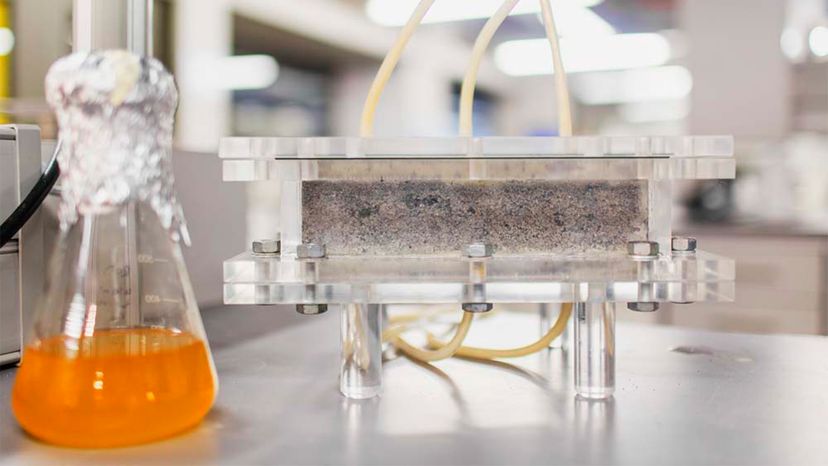
You probably didn't know brick manufacturing was contributing to ourclimate changewoes, but these sturdy building blocks need to be cooked at around 2,500 degrees Fahrenheit (1,400 degrees Celsius) — and generating that kind of heat produces tons of carbon dioxide. But a team of South African scientists has discovered a process for making bricks that doesn't need firing at high temperatures. All you need is sand, bacteria and a whole lot of humanurine.
Through a process called microbial carbonate precipitation, the research team was able to create a limestone-hard "bio-brick" that solidifies at room temperature. The process is similar to how a coral reef is grown. The secret ingredient is human pee — an enzyme made by the bacteria breaks down the urea in the urine, binding grains of sand together into bricks that can be used to build a house or a bridge. The longer the bacteria is left to do its magic, the stronger the brick.
Advertisement
In apress releasefrom the University of Cape Town where the research was conducted, Dr. Dyllon Randall, a senior lecturer in water quality engineering, said that urine is, from a chemical standpoint, "liquid gold." By volume, pee makes up only 1 percent of what's in our domestic wastewater, but it contributes 80 percent of the nitrogen, 56 percent of the phosphorus and 63 percent of the potassium to the effluent that comes out of wastewater treatment plants.
These are all chemicals we use all the time, and we even manufacture them synthetically for things like commercial farming. Calcium phosphate, for instance, is foundational to modern agriculture, but worldwide reserves are running dry. They're not running dry in our toilets, however. Bio-brick production would also produce nitrogen and phosphorous as byproducts, which could help with future fertilizer shortages.
For the time being, we're diluting all this liquid gold and letting it flow into our rivers and streams, where it's not doing aquatic ecosystemsany favors. But changing how we deal with pee is tricky. Researchers are working on how to collect and transport it, how to streamline the system for making the bio-bricks and how to then turn the byproducts into fertilizers. The ultimate challenge? Figuring out how to sell this idea to the public. You might have heard, people don't love the idea of messing around with pee.
"At the moment we're only dealing with urine collection from male urinals because that's socially accepted," said Randall. "But what about the other half of the population?"
Homework for your spare time: Start getting used to urine being really useful stuff.
Advertisement

